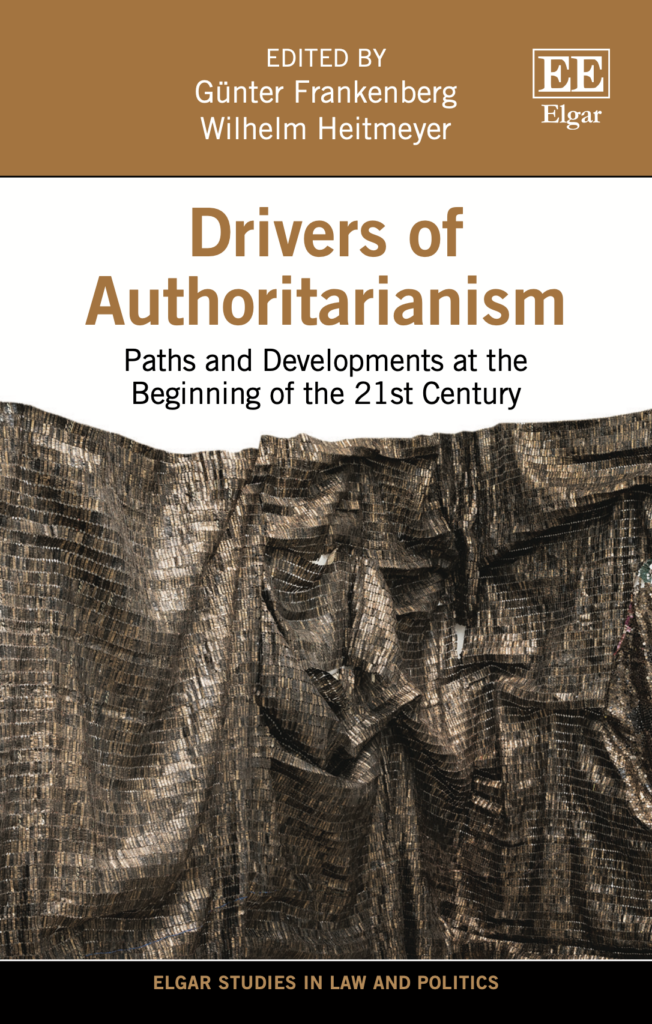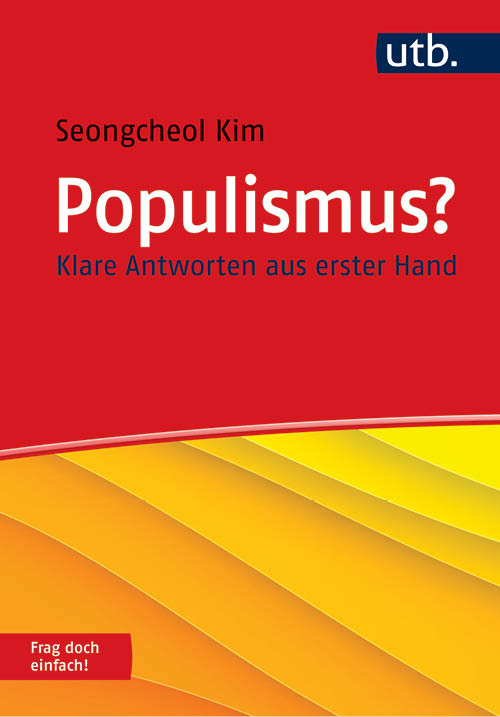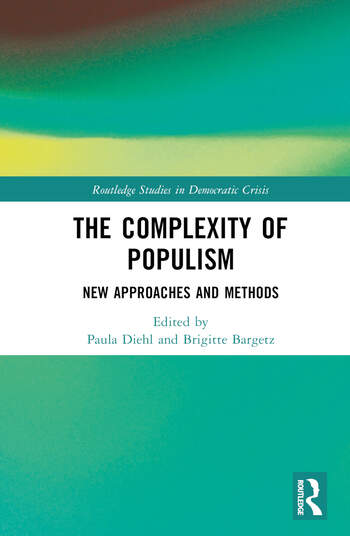International Populism Research Network
ABOUT THE NETWORK
The network’s activities are centered on new theoretical, qualitative and quantitative approaches to studying the phenomenon of populism worldwide.
It is open to other social science and humanities disciplines beyond the field of political science, such as sociology, philosophy, cultural, media and literature studies, ethnology, visual studies, performance studies, law and history.
The International Populism Research Network organizes academic events (both in-person and online) at CAU Kiel and in collaboration with partner institutes. These include academic conferences, workshops and panels at national and international conferences, international teaching collaborations and events for the general public.
The International Populism Research Network conducts its own research projects and supports doctoral and post doc projects.
It disseminates its research findings in the form of scientific publications and publicizes the core work of its partner organizations.
To give its activities additional visibility, the International Populism Research Network also communicates with the broader public.
We are Hering: Post-Doc
New publication of Seongcheol Kim
Populismus? Frag doch einfach! Klare Antworten aus erster Hand
Populistische Bewegungen und Parteien sind in Europa angeblich auf dem Vormarsch. Seongcheol Kim geht in seinem Buch dem Populismus auf den Grund. Er erklärt die verschiedenen Definitionen und Anwendungsmöglichkeiten des Begriffs und erläutert seine Geschichte. Varianten wie Links- und Rechtspopulismus kommen ebenso zur Sprache wie Antipopulismus und Gegenstrategien aus Wissenschaft, Kultur und Politik.
Interview of Paula Diehl
“Populists know how to use the media”

In this interview for LatAm Journalism Review, Paula Diehl talks about the structural affinity between the populist communication of politicians like Donald Trump, Jair Bolsonaro and Javier Milei and the media’s selection criteria. The media become accomplices of populist actors, she argues, because populism generates public attention.
Award for Social Science Essays
Nomination of Brigitte Bargetz and Nina Elena Eggers
We congratulate PD Dr Brigitte Bargetz and Nina Elena Eggers on their nomination for the Fritz Thyssen Foundation Prize for Social Science Essays of the Year 2023.
The two members of the network were nominated by the journal Politische Vierteljahreszeitschrift (PVS) for their article „Affektive Narrative: Theorie und Kritik politischer Vermittlungsweisen" ("Affective Narratives: Theory and Critique of Political Mediation"), where they conceptualize the intertwining of narratives and feelings in the realm of the political and demonstrate its meaning by using the example of Björn Höcke's right-wing populist mobilization. Fingers crossed for the award ceremony!
New publication of Paula Diehl and BRIGITTE BARGETZ (eds.)
The Complexity of Populism – New Approaches and Methods
Much as populism has been researched, it remains a contested notion without coherent definition and methodology, and shaped by dimensions such as ideology, communication style, discourse, mobilization, and organization. It has simultaneously mobilized emotions, produced symbols, and affected subjectivity and gender relations and can manifest itself in different ways and appear in hybrid forms, such as in the cases of Silvio Berlusconi, Hugo Chávez, and Donald Trump.
With chapters by Paula Diehl, Carlos de la Torre, Birgit Sauer, Brigitte Bargetz, Stefan Bird-Pollan, Federico Finchelstein, Giorgia Bulli, Martin Reisigl, Mojca Pajnik, Till Weber.
The book was published on July 3, 2023 and can be ordered here.
Open Access: Mojca Pajnik: Transformations of the Media Sphere. Amplifying Opportunity Structures for Populism
New Publication of Günter Frankenberg and Wilhelm Heitmeyer (eds.)
Drivers of Authoritarianism – Paths of Developments at the Beginning of the Twenty-first Century
There are serious threats to pluralistic societies and modern democracies. Authoritarian temptations have become increasingly visible. On the part of regimes, the mechanisms come to bear in statecraft, repression, and rhetoric; on the part of social movements, in agendas and strategies; and on the part of populations, in their patterns of thought, orientations to action, and readiness to follow. Who or which forces are driving authoritarian developmental thrusts: Are they social, economic or political crises, the controlling interests of finance capital or deficits in democracy?

With chapters by Brigitte Bargetz, Kai Biermann, Oliver Decker, Paula Diehl, Klaus Dörre, Nina Elena Eggers, Günter Frankenberg, Klaus Günther, Wilhelm Heitmeyer, Maximilian Pichl, Lars Rensmann, Dieter Rucht, Birgit Sauer, Bernd Stegemann, Natascha Strobl, Volker Weiß, Michael Zürn.
Call For Papers – Peace Research in Sweden (PRIS)
Populism and Conflicts Across Scales: Unpacking Challenges, Responses, and Potentials
ZDF – MAITHINK Xperts: Populism
Populism in Politics and the Media
What characterises populist rhetoric? When does it become a threat to democracy? Why is it compatible with the media's attention economy? Paula Diehl talks about populism in politics and in the media at MaiThink.
Legal Notice:
Institute of Social Sciences/Political Science
Olshausenstr. 40
24118 Kiel
Represented by: Prof. Dr. Paula Diehl (Director)
Olshausenstr. 40
24118 Kiel
phone: +49 431 880-5217
mail: contact.populism@politik.uni-kiel.de
Liability for links: Our offer contains links to external websites of third parties, on whose content we have no influence. Therefore, we cannot accept any liability for any external content. The respective provider or operator of the site is always responsible for the content of the linked sites. The linked pages were checked for possible legal violations at the time of linking. Illegal content was not identified at the time of linking.However, a permanent control of the content of the linked pages is not reasonable without concrete evidence of a violation of the law. If we become aware of any infringements, we will remove such links immediately.
Copyright: The content and works on these pages created by the site operators are subject to German copyright law. The reproduction, editing, distribution and any kind of use outside the limits of copyright law require the written consent of the respective author or creator. Downloads and copies of these pages are only permitted for private, non-commercial use.
Insofar as the content on this site was not created by the operator, the copyrights of third parties are observed. In particular, third-party content is identified as such. Should you nevertheless become aware of a copyright infringement, please inform us accordingly. If we become aware of any infringements, we will remove such content immediately.
Webdesign by: Lilit K
Contact via mail



